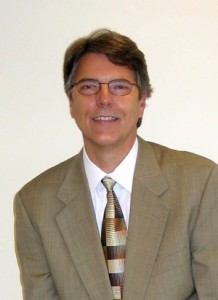ABIR Cautions Against ‘Unwise’ Policies
 In remarks delivered to a Real Estate Market & Property Insurance Conference hosted by the Atlanta Federal Reserve Bank yeterday [Dec.1], Brad Kading , president of the Association of Bermuda Insurers and Reinsurers [ABIR], documented the “growing, reliable and solid reinsurance capital” that supports US hurricane and earthquake risk.
In remarks delivered to a Real Estate Market & Property Insurance Conference hosted by the Atlanta Federal Reserve Bank yeterday [Dec.1], Brad Kading , president of the Association of Bermuda Insurers and Reinsurers [ABIR], documented the “growing, reliable and solid reinsurance capital” that supports US hurricane and earthquake risk.
And he cautioned US policymakers against what he called “counterproductive decisions” that would drive away insurance capital.
With offices in Bermuda and Washington DC, ABIR is the public policy branch of the island’s multi-billion dollar re/insurance sector.
Mr. Kading [pictured] said despite record $80 billion plus in global property catastrophe losses for 2011 the commitment of reinsurance markets to the US remains stronger than ever with ample capacity to meet the demands of American insurers.
“The record global property catastrophe losses from floods, earthquakes, hurricanes, tsunamis and tornadoes — now estimated at more than $80 billion — have not dented the private reinsurance supply that supports US property insurance markets,” he said. “But neither did the worst ever US hurricane losses from 2005 which featured Hurricanes Katrina, Rita and Wilma. Reinsurance capacity has grown since that worst ever US loss event.
“And despite these record 2011 catastrophe losses reinsurers continue to seek out US hurricane and earthquake risk.”
Further Mr. Kading noted that US consumers benefit from the growth in non-US catastrophe risk.
” Bermuda’s reinsurers will pay tens of billions of dollars in losses in 2011 for Japanese and New Zealand earthquakes and tsunamis and for Australian, Thai and European floods, thus sparing their taxpayers those additional recovery and rebuilding costs while boosting and speeding economic recovery,” he said. “We paid more than $22 billion to our US clients for the 2004 and 2005 US hurricanes, including Katrina.
“The more risk reinsurers write in those non-US markets the more risk we can assume from the US. Greater global diversification means greater US capacity at competitive prices,” Kading noted.
“In 1992 the largest per event cover a US insurer could buy from a reinsurer was $400 million . That has now grown to $3.5 billion in 2011. Bermuda’s reinsurers provided nearly half of that capacity in 2011,” Kading said citing statistics from a reinsurance broker.
“But poor decisions from policy makers can interfere with this free flow of reinsurance capital.”
Noting Florida’s “unwise” 2007 decision to expand the Florida Hurricane Catastrophe Fund by $12 billion meant that of the $34 billion in capital raised in 2006 following hurricane Katrina, more than $17 billion was returned to shareholders in 2007 as excess funds in the form of share buy backs and dividends, Mr. Kading said: “International reinsurance markets will willingly meet the needs of the US, but US policymakers can undercut that capital support by creating or expanding state or federal funds that displace private capital; or by enacting discriminatory tax laws.
“US policy makers can either act to maximize private sector risk bearing, or to maximise the use of government debt. We are suffering through a global debt crisis — the wisest public policy is to maximize private sector risk bearing.”

